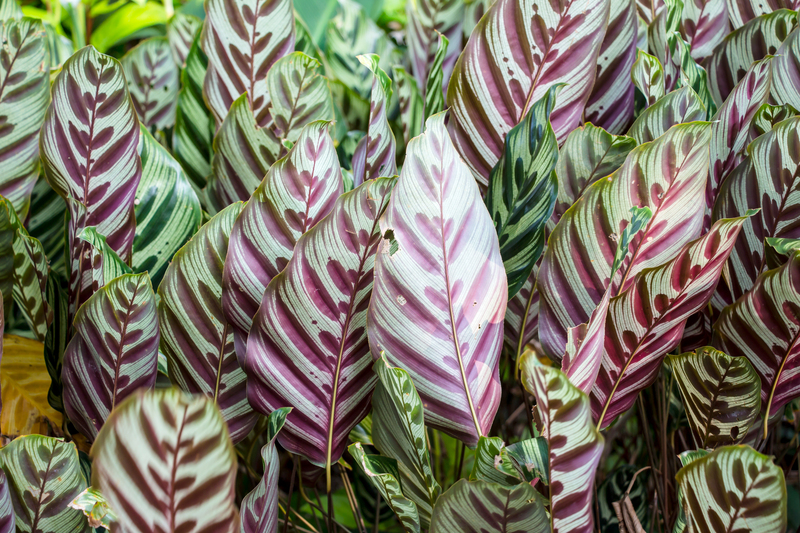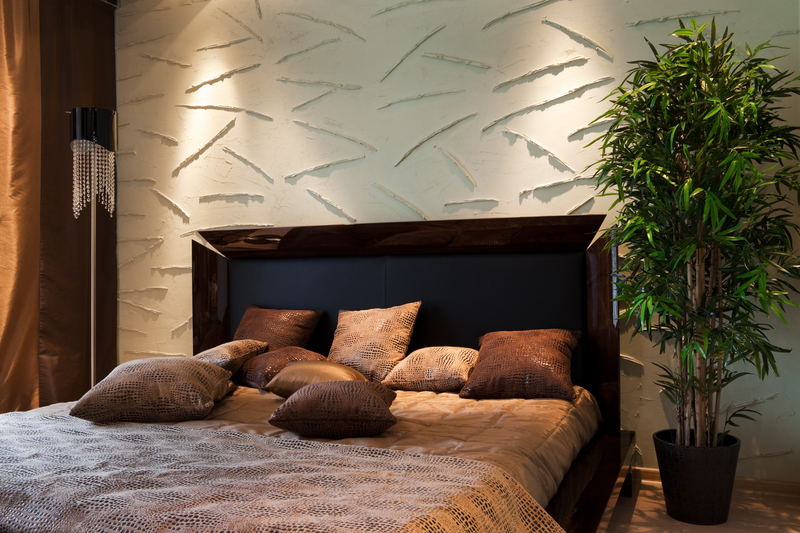Shade-Loving Evergreens: Bringing Life to Dim Spaces
Posted on 21/08/2025
Shade-Loving Evergreens: Bringing Life to Dim Spaces
Creating a lush garden in areas with limited sunlight can be challenging. However, shade-loving evergreens can transform these dim spaces into vibrant, green sanctuaries all year round. These hardy plants thrive in low light conditions and add color and texture, making them an ideal choice for gardeners. In this guide, we'll explore various shade-loving evergreens that bring life to those shadowy corners of your outdoor space.
Understanding Shade-Loving Evergreens
Before diving into specific plant selections, it's essential to understand what defines shade-tolerant evergreens. These plants have adapted to thrive with minimal sunlight. Typically, they can survive in areas that receive less than three hours of direct sunlight per day. They are a smart choice for understory planting beneath larger trees or in the sun-restricted areas of urban gardens.
Benefits of Shade-Loving Evergreens
- Year-Round Appeal: These plants maintain their foliage throughout the year, providing continuous color even in winter.
- Low Maintenance: Most are durable and require minimal care, making them perfect for busy gardeners.
- Environmental Benefits: They improve air quality by filtering pollutants, plus they provide habitat and food for wildlife.

Top Shade-Loving Evergreen Species
Here are some popular shade-tolerant evergreen plants to consider for your garden.
1. Heuchera (Coral Bells)
Heuchera, also known as Coral Bells, is known for its vibrant foliage that comes in various colors, from deep purple to bright green. These plants are not only shade-tolerant but also drought-resistant, making them a versatile option for many gardens.
- Soil: Prefers well-drained soil.
- Light: Thrives in partial to full shade.
- Climate: Hardy in USDA zones 4 to 9.
2. Boxwood (Buxus)
The Boxwood is a classic evergreen that brings a timeless quality to any garden design. Its dense, small leaves make it an excellent choice for hedges and topiary.
- Soil: Prefers moist, well-drained soil.
- Light: Can grow in full sun to partial shade.
- Climate: Hardy in USDA zones 5 to 9.
3. Japanese Yew (Taxus cuspidata)
The Japanese Yew is admired for its dark green needles and attractive red berries. It's a very durable plant that can be pruned into various shapes, perfect for formal gardens.
- Soil: Thrives in well-drained soil, tolerant of different pH levels.
- Light: Performs well in full sun to heavy shade.
- Climate: Hardy in USDA zones 4 to 7.
4. Ferns
Ferns like the Japanese Painted Fern or Autumn Fern are excellent for deep shade scenarios. Their delicate fronds add a soft, airy texture to garden compositions.
- Soil: Prefers rich, moist soil.
- Light: Grows best in partial to full shade.
- Climate: Varies based on species; generally hardy in zones 3 to 9.
Planting and Care Tips for Shade-Loving Evergreens
Here are some tips to ensure that your shade-tolerant evergreens thrive:
- Soil Preparation: Amend soil with organic matter to enhance drainage and fertility.
- Watering: Consistent watering is crucial, especially during dry spells, but avoid waterlogging.
- Pruning: Occasionally prune to maintain shape and improve air circulation around the plant.

Common Challenges and Solutions
Pests and Diseases
While shade-loving evergreens are generally hardy, they can be susceptible to pests like aphids and diseases such as root rot. To mitigate these risks:
- Inspect Regularly: Regularly check plants for signs of infestation or disease.
- Environment: Ensure good air circulation and avoid overcrowding.
- Treatment: Use organic or chemical treatments as necessary, following product instructions carefully.
Soil Compaction
Compacted soil can restrict root growth. To avoid this, aerate the soil regularly and apply mulch to maintain soil structure and moisture levels.
Design Ideas for Shaded Gardens
Shade-loving evergreens can help you create dynamic landscapes even in dim environments. Here are some design ideas:
- Layering: Combine plants of different heights to create a lush, natural look.
- Color Contrast: Use a variety of foliage colors for visual interest.
- Mixing Textures: Combine different leaf textures for a more intricate garden design.
Incorporating shade-loving evergreens into your garden can dramatically enhance the appeal of shaded areas. By selecting the right plants and following simple care guidelines, you can create a green oasis that thrives throughout the year.
Remember, with careful selection and planning, even the shadiest parts of your garden can be transformed into beautiful, verdant spaces that you and your visitors will enjoy for years to come.
Latest Posts
Keeping Your Garden Safe from Extreme Weather Events
Transforming Urban Spaces with Vertical Gardening
Crafting a Playful and Safe Garden for Children
Conquer Your Garden Foes: Three Proven Weed Control Techniques
Fun and Safe Outdoor Spaces: Crafting a Child-friendly Garden

